- Home
- James Swain
The Night Monster Page 11
The Night Monster Read online
Page 11
Back in the 1920s, Hollywood had fancied itself the moviemaking capital of the east, and had been filled with sound lots and production companies. Brutal summers and giant mosquitoes had driven the moviemakers away, leaving palm tree lined streets and scores of Art Deco homes.
I crossed the Hollywood Bridge, the historic Hollywood Beach Hotel directly in my path. Exiting the bridge, I drove a hundred yards on A1A, and turned down a side street where the elevated parking garage was located. The garage was four stories high and self-service. A perfect place to hide out for a few hours, or even a day.
I parked on the street and got out with Buster. A policeman’s bicycle was parked by the garage’s first floor. As my dog sniffed its tires, I looked for its owner. The first floor of the garage was filled with cars, yet quiet. I guessed their owners were on the beach getting turned radioactive by the sun.
“Help me.”
The voice came from somewhere inside the garage. Buster’s hackles rose.
“Please, somebody help me.”
I wanted to go in, but I knew better. It could be a trap. Taking out my cell phone, I called Linderman’s cell, and heard him answer on the first ring.
“I’m at the parking garage in Hollywood,” I said. “Where are you?”
“I’m still stuck in traffic. Did you find anything?” the FBI agent asked.
“There might be a policeman down, but I can’t be sure. I need you to call the Hollywood police and ask them the name of the bicycle cop they sent over to investigate the old lady’s complaint.”
“Hold on.”
I heard the click-click sound of Linderman putting me on hold. I’d worked with the Hollywood bicycle cops on occasion, and found them an athletic, fun-loving group of guys. Most of the calls they handled were drunks disturbing the peace, and rarely anything serious. I found myself fearing for the poor officer who’d taken the call.
Linderman returned to the line. “His name is Officer Marc Georgian.”
“Thanks. I’ll call you right back.”
I folded the phone and slipped it into my left pocket while drawing my Colt from my right. I stepped into the first floor of the garage with Buster glued to my leg. A sharp breeze was coming off the ocean and tiny particles of sand tore into my skin.
“Officer Georgian!” I called out.
“Yes,” the voice replied weakly.
“My name’s Jack Carpenter, and I’m an ex-cop. Are you hurt?”
“Yes.”
“Can you tell me where you are?”
“Between two cars.”
“I can’t see you. Can you signal to me where you are?”
“I can’t move.”
“Before I come in there, I need to ask you a question. What’s your first name?”
“Marc.”
“All right. I’m sending my dog ahead of me. His name is Buster.”
“Okay.”
I nudged Buster with my knee. “Go find the policeman.”
Nose to the ground, Buster cautiously entered the garage, and did a serpentine route around the cars, then suddenly darted between a Malibu and a station wagon. I followed him with my Colt clutched in front of my body. The sound of the ocean was magnified inside the garage, and the sound of crashing waves echoed around me.
I entered the space between the Malibu and the station wagon. Officer Georgian lay face up on the pavement, a tanned, muscular guy dressed in the familiar blue shorts and bright white shirt of the Hollywood bicycle cops. His face was battered, his eyes swollen and blackened. I knelt beside him.
“Who did this?” I asked.
“I don’t know. He jumped me from behind.”
Georgian was bleeding from the nose and mouth and his voice was weak. Placing my Colt on the ground, I pulled out my cell phone, and started to dial 911.
“No cell service inside the garage,” Georgian whispered.
Picking up my Colt, I stood up.
“I’ll be right back.”
Georgian blinked, saying nothing. He was going into shock, and would die if I didn’t act fast. Buster was lying beside him with a concerned look on his face. I told my dog to stay, then ran out of the garage, and made the call from the sidewalk. An automated operator answered, and put me on hold.
A shadow appeared above my head, blocking out the sun. I looked straight up. A vending machine was falling from the second floor of the garage, the words Everything Goes Better With Coke! rushing down at me. I dove into the grass.
The machine hit the spot where I’d been standing with an enormous crash, then toppled over. Brown liquid poured out of the cracked front glass like blood. I stared at the spot where I’d just been standing, seeing my after-image lying broken and dying on the pavement. I’d been spared again.
Tires screeched inside the garage, snapping me back to reality. A vehicle was racing down from one of the upper levels. Sara’s abductors were making their escape.
My call went through. I tried to give the operator the address. My voice was trembling, and I heard the operator tell me to take a deep breath, and calm down. She was trying to be nice, but it had the opposite effect. I couldn’t have calmed down if my life had depended on it. Folding my phone, I ran back into the garage.
On the first floor, a few cars away from where Officer Georgian lay, I positioned myself in front of the exit, and went into a crouch, holding my gun in both hands. The concrete was vibrating, the roar of the getaway vehicle’s engine drawing closer. In a matter of seconds it would be on top of me.
I debated my plan of action. I could shoot out a tire as the vehicle came into range, only there was a chance the driver—who I assumed was Mouse—would lose control and crash. That would be a disaster, for Sara Long would certainly be hurt.
Or I could shoot, miss the tire, and hit Sara. Another disaster.
I lowered the gun.
Shit.
The sound of squealing brakes ripped through the garage. The vehicle had reached ground level, its muffler roaring. It came around the corner, a multicolored Volkswagen van with giant Peace symbols painted on the sides. Mouse was behind the wheel, and I had to give him credit. It was the last kind of vehicle I would have expected him to use to transport Sara Long.
I jumped behind a parked car, ready to catch the license plate. Hollywood employed a hefty police force, and I decided to call the van’s license in, and let the Hollywood cops do the rest.
To my horror, Buster darted out from between the cars, and started trotting toward me, his tail wagging furiously. I’d forgotten all about him.
“No, boy, no!” I shouted.
Buster ignored my pleas, and kept coming forward. The day I’d gotten Buster from the pound, he was going to be given the needle. Somehow, I think he knew this; a more loyal animal I was never going to find.
I jumped out from behind the car. Buster let out a joyful bark. My eyes shifted to the van. There was more than enough room for Mouse to have driven around Buster, and avoid hitting him. It said something about the man that he bore down on my dog instead.
CHAPTER 22
he hippie van’s front bumper was twenty feet from sending Buster to doggie heaven. I was too far away to save him. All I could do was watch.
Then I had a thought; maybe Buster could save himself.
I clapped my hands and yelled his name like we were playing a game of fetch. We did that every night on the deserted stretch of beach outside the Sunset; it was Buster’s favorite thing to do.
His upper lip curled up in a doggie smile, Buster’s back legs accelerated just as the van was about to take him out. I extended my arms and kept yelling encouragement. I was going to end up getting killed if I wasn’t careful. Yet it felt like the right thing to do. Then Buster did something I’d never seen him do before: He jumped off the ground, and flew through the air like a Frisbee dog on Animal Planet, his pink tongue hanging out of his mouth. I caught him in midflight, his body knocking the air out of mine. The van was right behind him. I dove between a pair of cars
, my dog in my arms.
“Good boy,” I said.
Buster licked my face. Mouse angrily blared his horn as he flew past.
I rushed into the aisle with my dog still cradled in my arms. Mouse had driven through the exit and was burning down A1A toward the city of Hallandale. Sara Long was in the back of that van, and it tore at me to think I’d gotten this close, and hadn’t saved her. I pulled out my cell phone and punched in 911.
“This is nine-one-one,” an operator said. “What is the nature and location of your emergency?”
The operator’s voice sounded familiar. Back when I was a cop, I’d made it a point to know all the operators, and to send them small gifts on their birthdays.
“This is Jack Carpenter. Who is this?”
“Well, hello Jack. This is Edie Burgess. It’s been a while. What’s wrong?”
Edie had been with the department over twenty years, and there wasn’t much she hadn’t seen. I gave her the Reader’s Digest version of everything that had happened.
“My, haven’t we been busy,” she said.
Hollywood was God’s waiting room, and there were always ambulances on call. EMS showed up a few minutes later, and a pair of medics attended to Officer Georgian before loading him into an ambulance. I stood nearby with Buster still in my arms.
One of the medics asked me if I’d seen Georgian’s assailant. I started to tell him that a sociopathic giant was responsible, then realized the medic might want to take me away for a psychiatric evaluation. Instead, I shook my head like I didn’t know.
Georgian was loaded into the ambulance. His eyes were shut, and I said a silent prayer for him. I’d been hospitalized several times as a cop, and more than once I’d seen a dark, ethereal figure hovering over me while in an emergency room. It was the kind of experience that forever changed a person. I knew that it had changed me.
I lowered Buster to the ground and went to the curb. Fluid still trickled out of the soda machine. I wrenched the door open, and removed an unexploded can of Coke. As I sucked it down, a siren broke the stillness, and a police cruiser raced across Hollywood Bridge and down the exit ramp. Trailing the cruiser was a black Toyota 4Runner with tinted windows and Virginia license plates. Linderman.
The cavalry had arrived.
Linderman pulled up to the curb and jumped out of his vehicle. His face was flushed, his eyes betraying a tinge of desperation. Traffic in south Florida could turn the sanest people into lunatics, and he looked ready to rip the head off a live chicken.
“What happened?”
“They got away. I called the vehicle make into the Hollywood police. They’re running them down right now,” I said.
“How long ago was this?”
“Five minutes.”
I was trying to sound optimistic. The Hollywood cops were as good as anyone at running down a stolen car, but Mouse and his partner were proving far more elusive than I would have guessed.
A pair of uniforms had gotten out of the cruiser and were coming toward me. I was in luck. They were both cops I knew.
“I need to talk to these guys,” I said.
“Be my guest.”
I gave the uniforms a blow-by-blow account of what had transpired while Linderman searched the garage for clues. While one of the uniforms scribbled down my story in his notepad, his partner examined the broken soda machine lying on the sidewalk.
“Someone threw this at you?” the uniform asked incredulously.
“That’s right,” I said. “He was on one of the elevated levels of the garage, and tossed it down.”
“What do you think this thing weighs?”
“I don’t know. Maybe four hundred pounds,” I said.
“Was this the same guy who beat up Officer Georgian?” the uniform asked.
“Yes. He’s a crazed giant, and unbelievably strong.”
The uniforms exchanged funny looks that told me my sanity was once again being questioned. They took a statement from me, and asked for a phone number in case they wanted to follow up with more questions. Then they left.
The sun had broken out from behind the clouds, and the pavement was baking. I ducked into the shade and waited for Linderman to come out.
I stared at Linderman’s car. The FBI agent had been living in Miami for over a year, but still hadn’t bothered to change his plates. Although he’d never said so, I’d assumed that once he found out what had happened to Danielle, he planned to move back north.
Linderman came out of the garage. The frantic look had left his face and his brow was gleaming with sweat. His jacket and tie had to be killing him, only I knew from past experience that he wasn’t going to take them off.
“Take a look at this,” he said. “I found it on the second floor.”
From his hand dangled a white paper bag with the McDonald’s logo printed on the side. He tossed the bag to me. Opening it, I found myself staring at an assortment of greasy fast-food wrappers and crumbled paper napkins. One of the napkins caught my eye. It was smudged with pink lipstick. Kneeling, I dumped the bag’s contents onto the ground, and began sorting through them. I was certain that Linderman had already done this. Now, he was waiting to see if I drew the same conclusions.
The bag contained ten fast-food wrappers. Nine of the wrappers were for Big Macs, the wrappers stained with the secret sauce that made Big Macs so tasty. The other wrapper was for a fish sandwich. There was also a french-fry container with a few loose fries stuck to the bottom. And a receipt containing the time the food had been bought, and the amount paid. I was staring at the remains of last night’s dinner.
My eyes kept drifting to the napkin with the lipstick stain. Picking it up, I saw tiny bits of food stuck next to the lipstick. I sniffed them.
“Smells like fish,” I said to Linderman.
“That was what I thought,” Linderman said. “Do you think she’s talking to them?”
That was what I wanted to think. Only I needed verification before I jumped to any more conclusions. Removing Karl Long’s business card from my pocket, I called his private number on my cell phone.
My call went through and rang several times. Then I heard a man’s voice that was unmistakably Long’s. Harsh and loud and no pretense at being friendly.
“Who is this?” Long demanded.
“Jack Carpenter.”
“I’m on the other line. Let me call you right back.”
“Hang up the other fucking line. This is about Sara.”
Long gasped. Maybe no one had talked to him like that in a while. Or maybe he wasn’t expecting me to be getting back to him so soon. I didn’t know and didn’t much care.
“Hold on.” Long went away, then came back. “I’m here. What did you find?”
“Let me ask the questions,” I said. “I need to know what Sara likes to eat.”
“How can this be important?” Long asked.
I looked at the lipstick-smudged napkin still in my hand. Please let this be Sara’s lipstick, I thought. Please.
“Answer the goddamn question,” I shot back.
“All right. Sara’s been a vegetarian since she was in high school. She hasn’t eaten red meat or chicken for years. She’s into healthy organic food, sometimes drives me crazy she’s so picky. Does that help?”
I found myself smiling. “Does she eat fish?”
“Yes, it’s one of her favorite things.”
I had been in a McDonald’s recently, and visualized the menu that hung over the checkout. There were many different sandwiches and burgers. The chance that Mouse had bought Sara a fish sandwich on a whim was slight. More than likely, he’d asked Sara what she liked, and Sara had told him that she wanted a fish sandwich.
“Are you still there?” Long asked nervously. “Please tell me what this means. I have to know.”
Normally, I didn’t share information with clients during investigations. It was a mistake to raise people’s expectations or give them false hope. But I’d brought Long into the process, and didn�
��t see how I could shut him out without giving him a heart attack.
“One of Sara’s abductors bought food last night at a McDonald’s, and got her a fish sandwich,” I said. “They couldn’t have known that Sara liked fish without Sara telling them.”
“And why is that important?”
“Two reasons. The first, which is the most important, is that her captors aren’t experiencing buyer’s remorse. That sometimes happens during abductions.”
“Buyer’s remorse? What the hell is that?”
“The goods aren’t what you’re expecting, so you get rid of them.”
“Sweet Jesus,” Long whispered.
“The second reason is that Sara’s abductors could have just bought her a burger, and shoved it down her throat. That’s what the majority of abductors do. They don’t care about what their victims like, and just feed them whatever they happen to be eating. Sara’s abductors are different. They asked her what she wanted to eat. That means Sara is talking to them, and has established a line of communication.”
“That’s good, isn’t it?”
“It depends upon what the line of communication is,” I said. “If a victim is constantly whining and complaining, then no, it’s not good. In this case, I think Sara has established a positive line of communication, and gotten on her captors’ good side.”
The napkin was still in my hand. One of Sara’s captors had used it to wipe Sara’s mouth after she’d finished eating her fish sandwich. It was as compassionate a gesture as I could envision between a victim and her kidnapper.
“Now I need to go,” I said. “Thanks for your help.”
“Wait!” Long said. “I have something to tell you.”
I glanced at Linderman. The FBI agent had his cell phone out and was talking to someone. The frown on his face was so deep it almost looked permanent.
“Go ahead,” I said.
“I was just talking with the guy who runs my company,” Long said. “I’ve instructed him to put all of my people at your disposal. That includes my two bodyguards and my driver and my helicopter pilot. They’re yours, if you need them.”
“You have a chopper?”

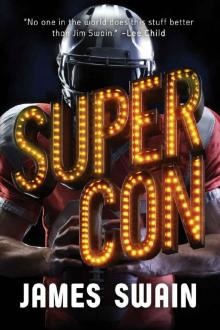 Super Con
Super Con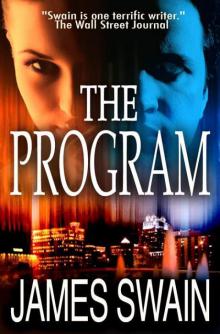 The Program
The Program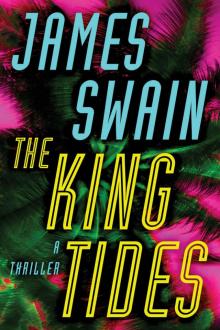 The King Tides (Lancaster & Daniels Book 1)
The King Tides (Lancaster & Daniels Book 1)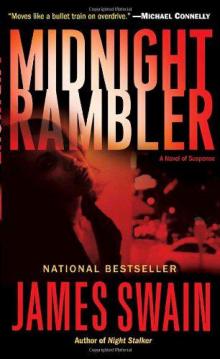 Midnight Rambler
Midnight Rambler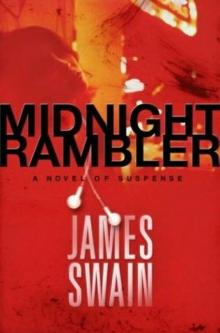 Midnight Rambler jc-1
Midnight Rambler jc-1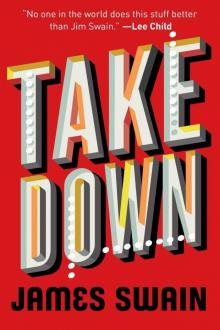 Take Down
Take Down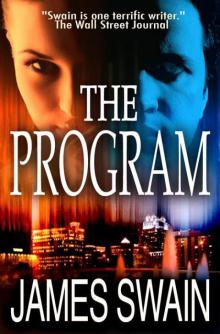 The Program (Jack Carpenter series)
The Program (Jack Carpenter series) Dark Magic
Dark Magic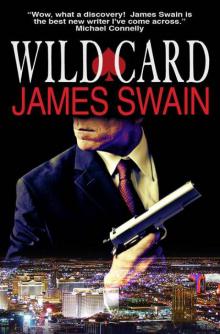 Wild Card (Tony Valentine Series)
Wild Card (Tony Valentine Series)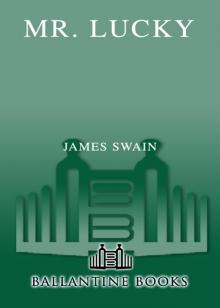 Mr. Lucky
Mr. Lucky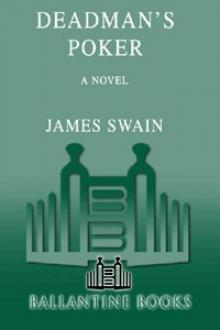 Deadman's Poker: A Novel (Tony Valentine)
Deadman's Poker: A Novel (Tony Valentine)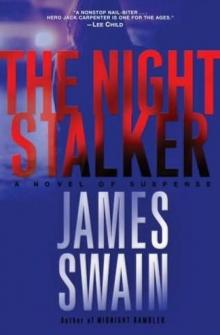 The Night Stalker jc-2
The Night Stalker jc-2 Loaded Dice tv-4
Loaded Dice tv-4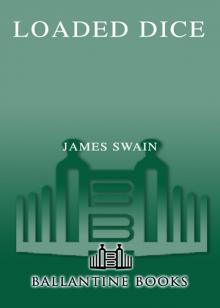 Loaded Dice
Loaded Dice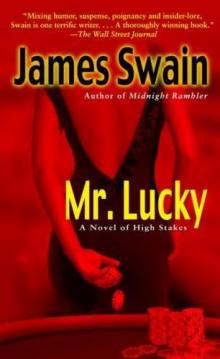 Mr. Lucky tv-5
Mr. Lucky tv-5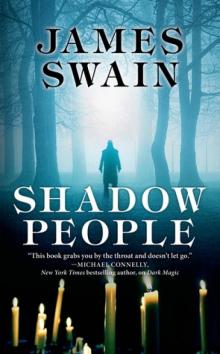 Shadow People
Shadow People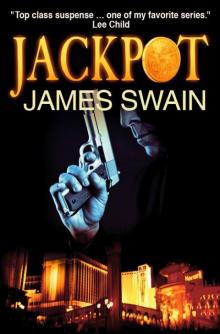 Jackpot tv-8
Jackpot tv-8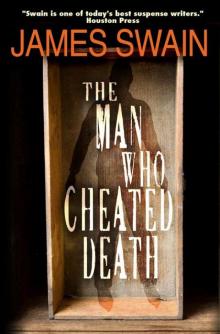 The Man Who Cheated Death (Vincent Hardare)
The Man Who Cheated Death (Vincent Hardare)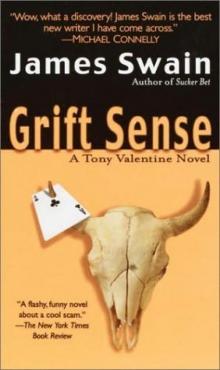 Gift sense tv-1
Gift sense tv-1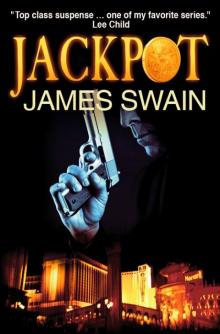 Jackpot (Tony Valentine series)
Jackpot (Tony Valentine series)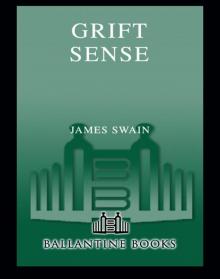 Grift Sense
Grift Sense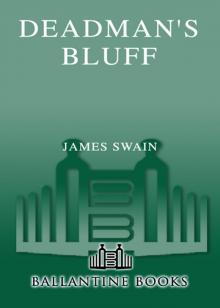 Deadman's Bluff
Deadman's Bluff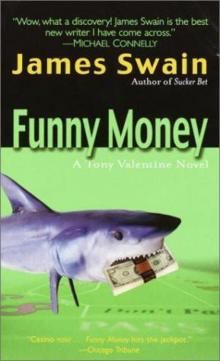 Funny Money tv-2
Funny Money tv-2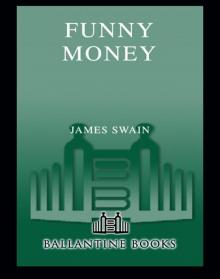 Funny Money
Funny Money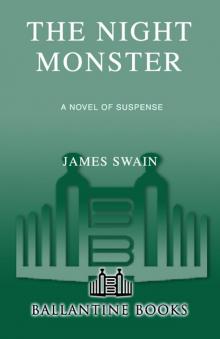 The Night Monster
The Night Monster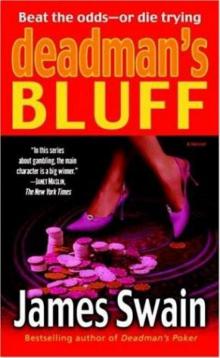 Deadman's Bluff tv-7
Deadman's Bluff tv-7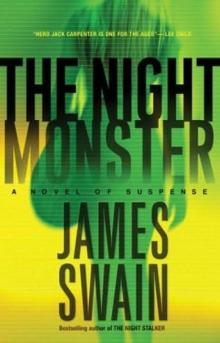 The Night Monster jc-3
The Night Monster jc-3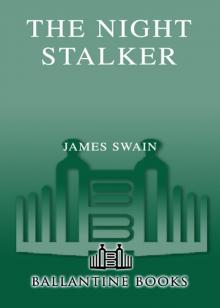 The Night Stalker
The Night Stalker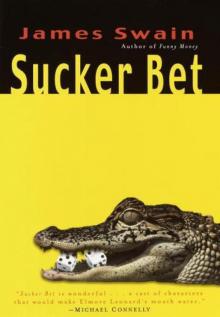 Sucker Bet tv-3
Sucker Bet tv-3